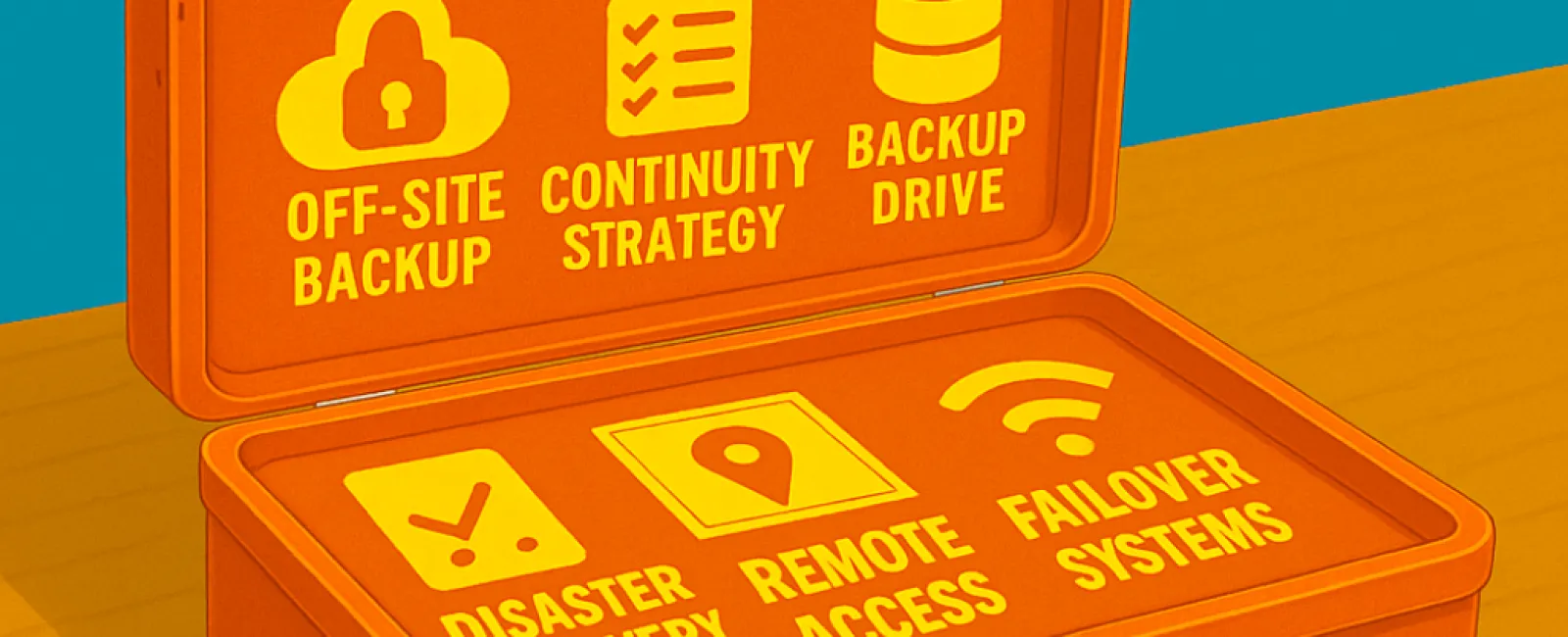July 28, 2025
Unexpected events like power failures, cyberattacks, hardware malfunctions, and natural disasters can strike without warning, posing serious threats to small businesses. Many believe that having backups is sufficient, but restoring files alone doesn't guarantee business continuity. Without access to critical systems, the ability to support remote work, and effective communication with your team and clients, even brief interruptions can cause lasting damage. Partnering with a dependable IT provider means having a comprehensive strategy that not only includes backups but also ensures your business remains fully operational under any circumstance.
Backups Are Just the Beginning — Ensure Business Continuity
Backups are vital, but they represent only a fraction of what's needed. A robust business continuity plan is a forward-thinking approach designed to keep your operations running seamlessly during and after any disruption.
When your systems fail, files become unreachable, or your workspace is compromised, relying solely on local backup files offers limited relief. Without a well-defined plan for rapid recovery, you risk significant losses in revenue, reputation, and regulatory compliance.
Backups vs. Business Continuity: Understanding the Critical Difference
Many businesses misunderstand this key distinction:
● Backups are designed to restore lost data.
● Continuity ensures your business stays operational regardless of the challenge.
A comprehensive continuity plan addresses essential questions such as:
● How quickly can we resume normal operations?
● Where will our team work if the physical office is inaccessible?
● Which systems are absolutely critical to our mission?
● Who is responsible for initiating the recovery process?
The plan also incorporates vital elements like:
● Secure, off-site, and immutable backups
● Clearly defined recovery objectives (RTO and RPO)
● Preparedness for remote work scenarios
● Redundant infrastructure and automatic failovers
● Regular disaster recovery drills and testing
If your IT partner can't confidently guide you through these critical components, you're not truly protected—you're just fortunate so far.
Could This Happen to Your Business?
This isn't a hypothetical scenario meant to alarm you—it reflects real disasters with tangible impacts. Consider recent events:
● Florida hurricanes forced numerous businesses to shut down, leaving those without cloud-based access completely immobilized.
● North Carolina floods destroyed on-site servers, wiping out months of critical records and invoices.
● California wildfires obliterated entire office buildings in the Pacific Palisades, many lacking off-site recovery solutions.
● Numerous small businesses struck by ransomware attacks have painfully discovered their backups were either corrupted or never properly tested.
Disasters don't discriminate by business size—they affect companies just like yours every day.
Questions You Should Be Asking Today
If disaster struck tomorrow, would your business keep running?
Make sure to ask your IT provider:
● In the event of ransomware, how quickly can we recover?
● Are our backups regularly tested, and which systems are covered?
● What is the contingency plan if a flood or fire disables our office?
● Does our continuity plan comply with industry regulations?
● Can we maintain client service if our team must operate remotely?
If you're not completely confident in these answers, your business may already be vulnerable.
Disasters Are Inevitable. Downtime Doesn't Have To Be.
While you can't prevent every outage, storm, or cyberattack, you can control how your business responds.
A reliable IT provider helps you bounce back.
A trusted partner ensures your business never misses a beat.
Curious about your current readiness?
Click Here or call us at 847-348-3381 to schedule your FREE 15-Minute Discovery Call, and let's guarantee that disasters don't translate into downtime.




